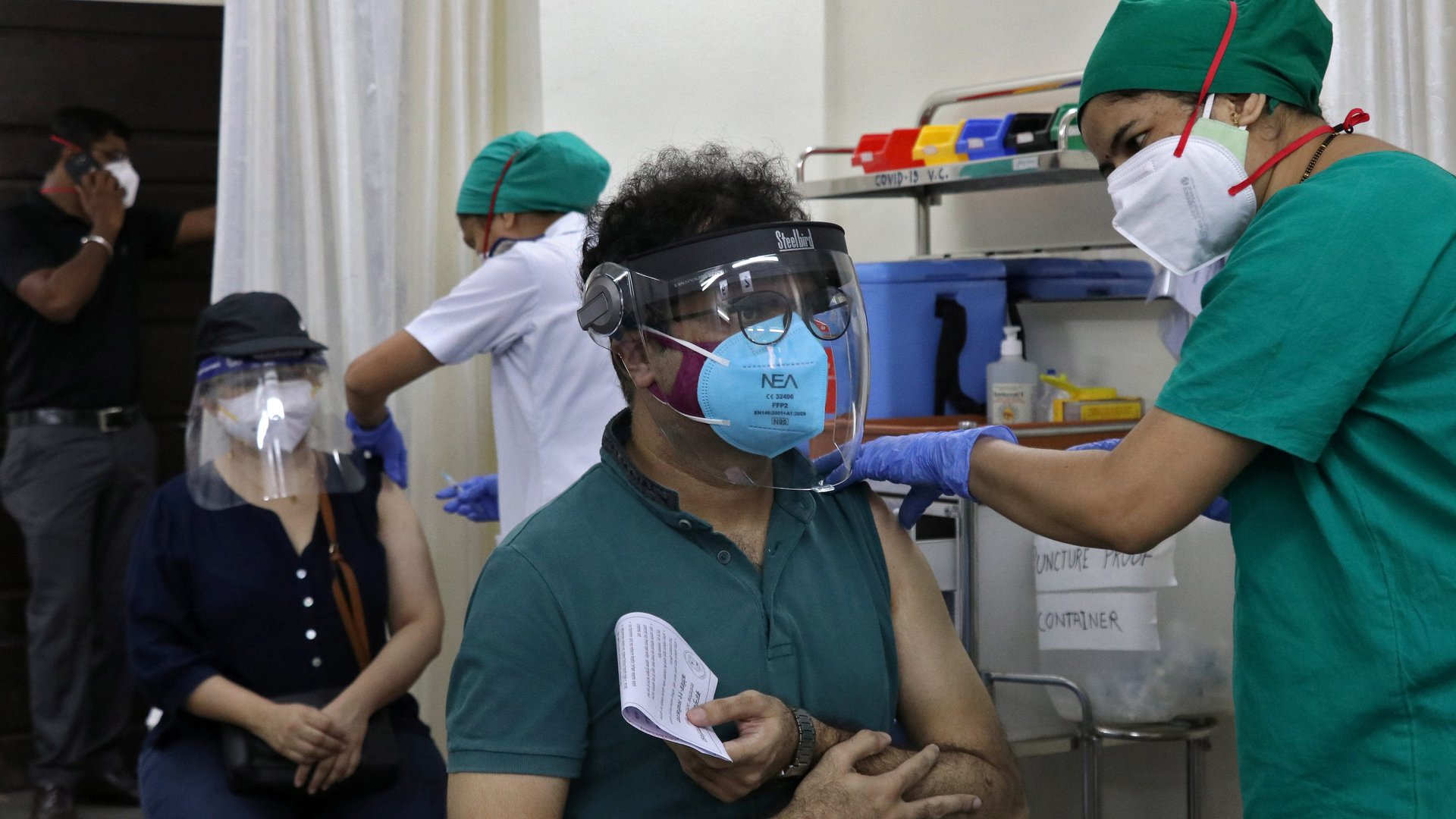In less than two months, the Modi government walks back its “liberalised” vaccine policy
The Narendra Modi government has changed its vaccination strategy, yet again.


The Narendra Modi government has changed its vaccination strategy, yet again.
Less than two months after it launched a “liberalised” vaccine policy, which mandated Indian states to directly buy Covid-19 vaccines from manufacturers for citizens between the ages of 18 and 44, the Modi government has said it will now procure vaccines for all eligible populations.
The rollback comes after the government drew heavy flak for its three-tiered policy, which many believed was ill-conceived and worsened inequality. On June 2, India’s supreme court had observed that this policy was “arbitrary and irrational.” It also said the differential pricing strategy was “discriminatory.”
This policy change also came after vaccine tenders taken out by India’s states bore no fruit. Most vaccine makers prefer to deal directly with national governments, rather than negotiate prices and supply for smaller orders.
This is what has changed in India’s vaccination strategy:
Nothing changes for Indians trying to book their vaccinations. Eligible populations can book their shots on the government’s Cowin platform as and when the vaccines are available.
Besides these changes, India has finally made special provisions for those who need the vaccine to travel abroad.
Vaccine dose gap for international students and athletes
Yesterday, India’s health ministry also announced certain exceptions to its 12-week dosing regimen for the Covishield vaccine. Students with offers from international universities, Indians with job offers, and athletes travelling to Tokyo for the Olympics will be able to take the second dose of the Covishield vaccine 28 days after the first.
On May 13, amid acute vaccine shortages, India increased the gap between the two doses of Serum Institute of India’s vaccine from the suggested six-eight weeks to a mandated 12 weeks. Those who get the Covishield dose can now only book the second dose after 84 days.
But with these new exceptions, eligible students, workers, and athletes, on producing a valid passport and other documentary proof will be able to shorten the gap. The vaccine certificate in such cases will also include the beneficiaries’ passport numbers.
Some states, like Kerala and Maharashtra, had already begun thinking about students and workers travelling abroad. While Maharashtra has been organising dedicated camps for international students, Kerala has offered to integrate passport numbers in the vaccine certificates for ease of travel.